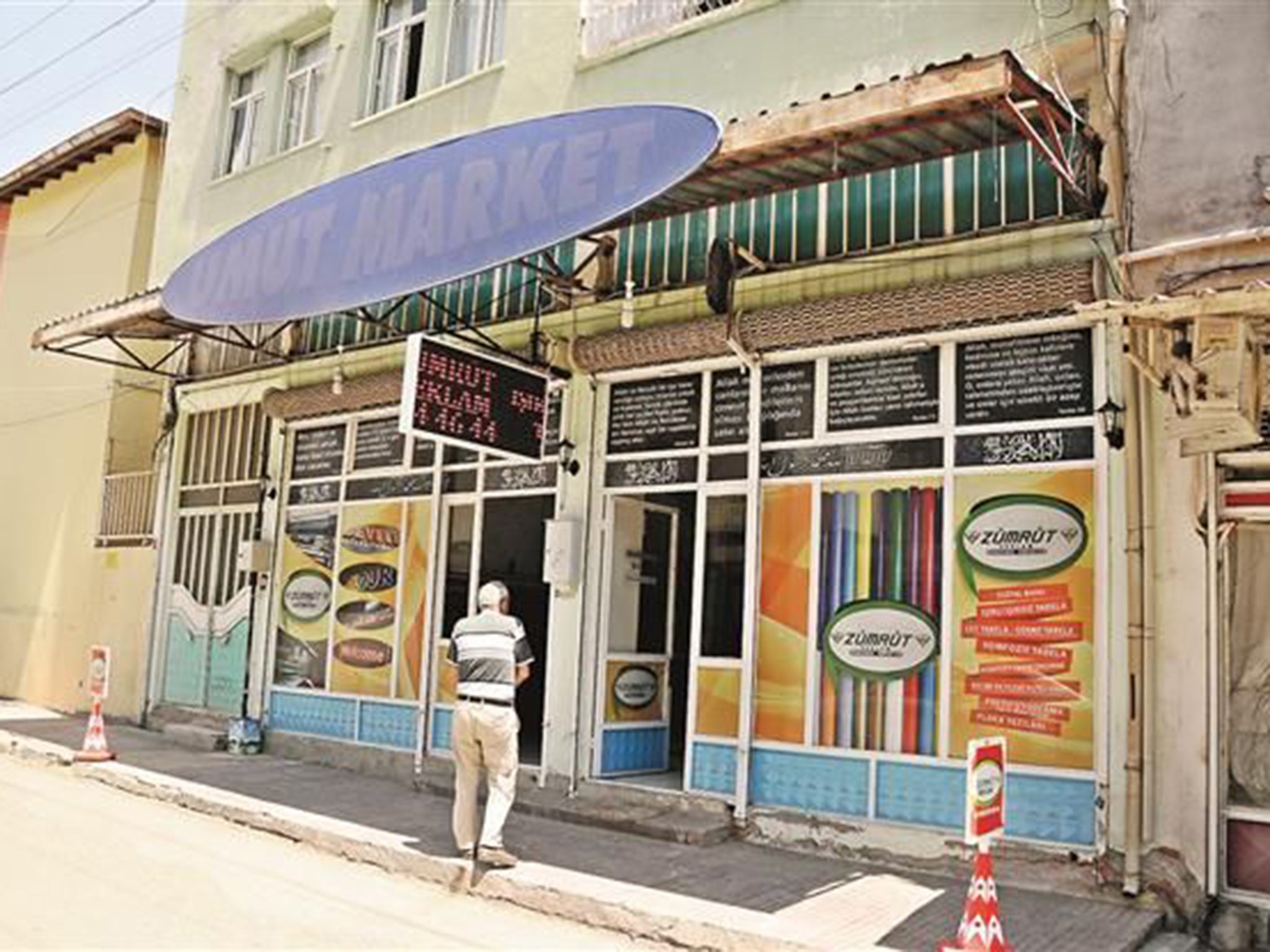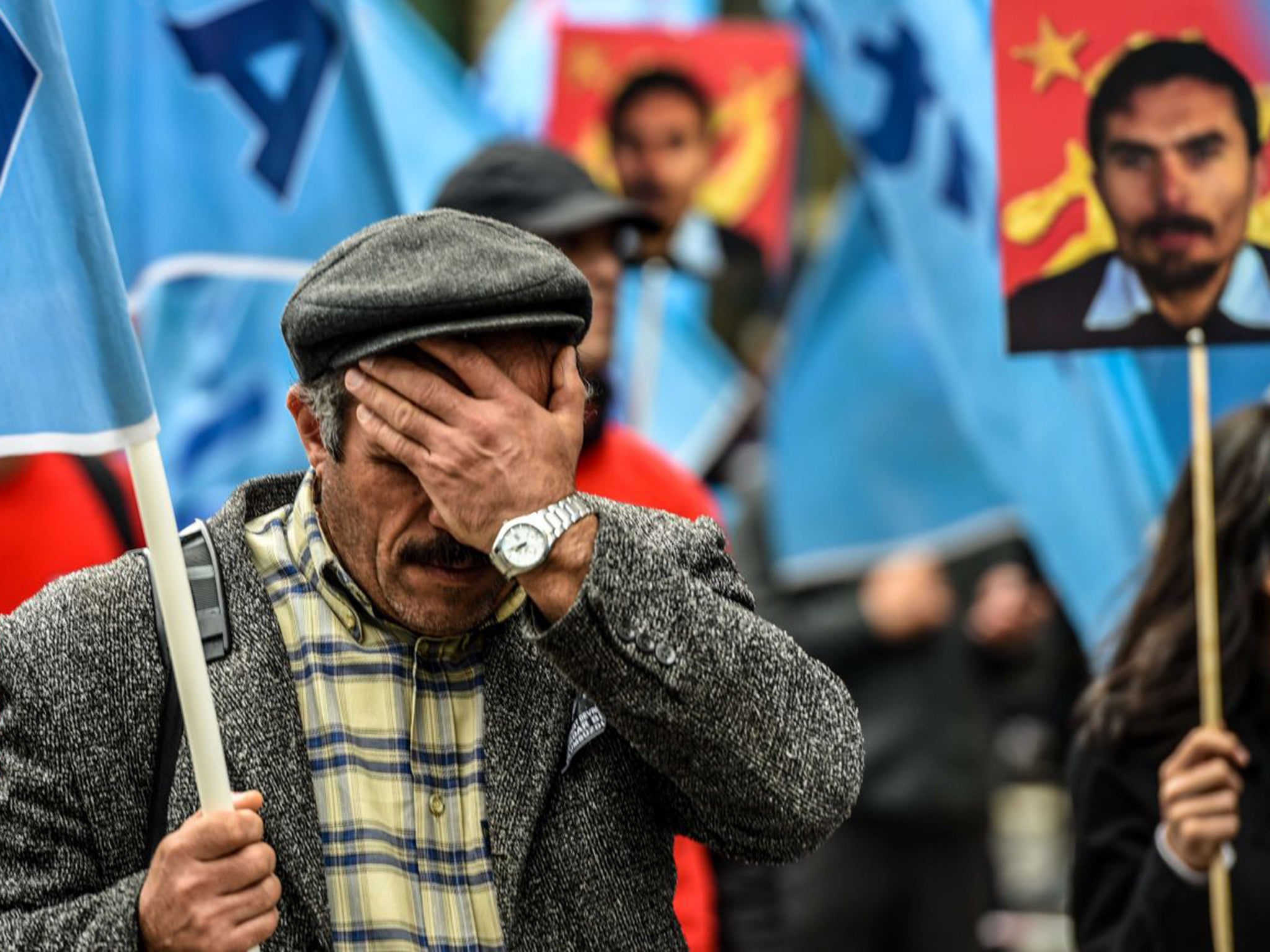Ankara bombing: Perpetrators used tea house in Adiyaman to recruit for Isis - in plain sight of authorities
The Islam Tea House was run by Yunus Emre Alagöz, one of two who reportedly carried out the attack on a peace rally last Saturday, and his brother Seyh Abdurrahman Alagöz, who killed 33 in the border town of Suruc in July

Your support helps us to tell the story
From reproductive rights to climate change to Big Tech, The Independent is on the ground when the story is developing. Whether it's investigating the financials of Elon Musk's pro-Trump PAC or producing our latest documentary, 'The A Word', which shines a light on the American women fighting for reproductive rights, we know how important it is to parse out the facts from the messaging.
At such a critical moment in US history, we need reporters on the ground. Your donation allows us to keep sending journalists to speak to both sides of the story.
The Independent is trusted by Americans across the entire political spectrum. And unlike many other quality news outlets, we choose not to lock Americans out of our reporting and analysis with paywalls. We believe quality journalism should be available to everyone, paid for by those who can afford it.
Your support makes all the difference.The Islam Tea House was a fertile recruiting ground for Islamists in the southern city of Adiyaman, where hundreds are said to have joined Isis within plain sight of authorities. One of them was Yunus Emre Alagöz, brother of a suicide bomber and reportedly one of two who carried out Turkey’s worst terror attack.
The Turkish government faced increasing accusations that it failed to prevent the bombings when Alagöz was named as one of the perpetrators of the Ankara bombings. Alagöz was the older brother of Seyh Abdurrahman Alagöz, who killed 33 in the border town of Suruc in July. The brothers ran the tea house in Adiyaman. Orhan Gönder, who was charged with bombing a rally of the pro-Kurdish party HDP in June, frequented the tea house.
Police identified the second Ankara bomber as Ömer Deniz Dündar, according to Turkish media. Dündar, too, came from Adiyaman, and was known to the police.

Turkey’s Prime Minister Ahmet Davutoglu announced that the death toll of the bombings had risen to 99 as he faced renewed criticism over a lapse in security and intelligence in relation to the Adiyaman cell.
Opposition politicians and mourners have blamed the government for failing to protect the rally. Selahattin Demirtas, the leader of the pro-Kurdish HDP, accused the state of turning a “blind eye” to Isis in Turkey.
Mr Davutoglu further enraged mourners on Monday when he said that Turkey had a list of potential suicide bombers but could not take legal action until the suspects carried out an attack. “They are kept on record. However, legal action cannot be taken until the realisation of the criminal act,” he told Turkish TV. The government has yet to confirm the bombers identities.
According to Turkish media, Alagöz and Dündar were both on a list of 21 suspected suicide bombers kept by the national intelligence agency MIT.
Turkish newspapers have reported on the Adiyaman cell for two years. “Another bombing attack is closer than we think,” ran a headline in the Radikal newspaper shortly after the Suruc bombing.
Ezgi Basaran, who reported extensively on the cell, wrote: “We have lists of their names. Does the state not know what we know?” Yunus Emre Alagöz had disappeared after his brother’s suicide attack.
Even the bombers’ parents tried to warn the police about their children. The father of Ömer Deniz Dündar told Radikal that he repeatedly asked for his son to be arrested after Dündar joined an Islamist group in Syria in 2013.
The father, named by his initials MD in the Turkish media, travelled to Syria to beg for his son’s return. When Dündar did re-enter Turkey in 2014, his father once more warned the local police, who questioned him for one day.
“I went to the police countless times to try and get my son back from Syria,” Dündar’s father said. “I told the police, please take him and imprison him. They took his statement and then they let him go.”
When the parents’ complaints eventually shut down the Islam Tea House last year, Alagöz reportedly returned to Syria, as did Dündar. Ahead of last Saturday’s rally in Ankara, they travelled to the capital in separate cars from Gaziantep, a province bordering Syria.
In response to mounting protests over the government’s failure to prevent the attack, Turkey’s interior minister fired several senior officials on Wednesday, including Ankara’s police chief. A court issued a gag order banning the Turkish media from publishing details of the investigation. Mr Davutoglu announced that 10 suspects, linked to the separatist Kurdistan Workers’ Party (PKK) and Isis, had been arrested in connection with the bombings.
He claimed that Isis and PKK had conspired to carry out the bombings, although he did not offer an explanation on how the two groups, which regard each other as mortal enemies, had come to an agreement.
Join our commenting forum
Join thought-provoking conversations, follow other Independent readers and see their replies
Comments